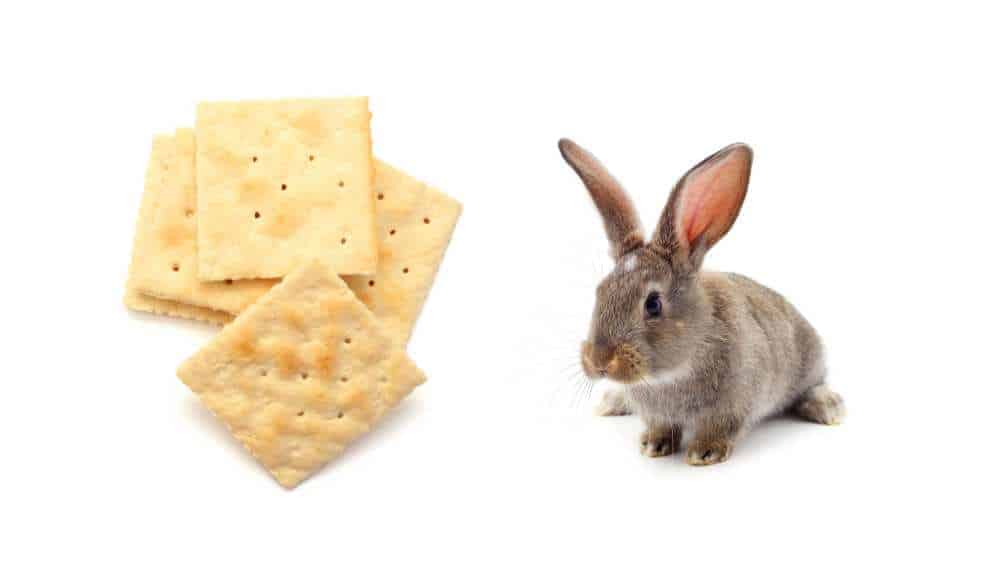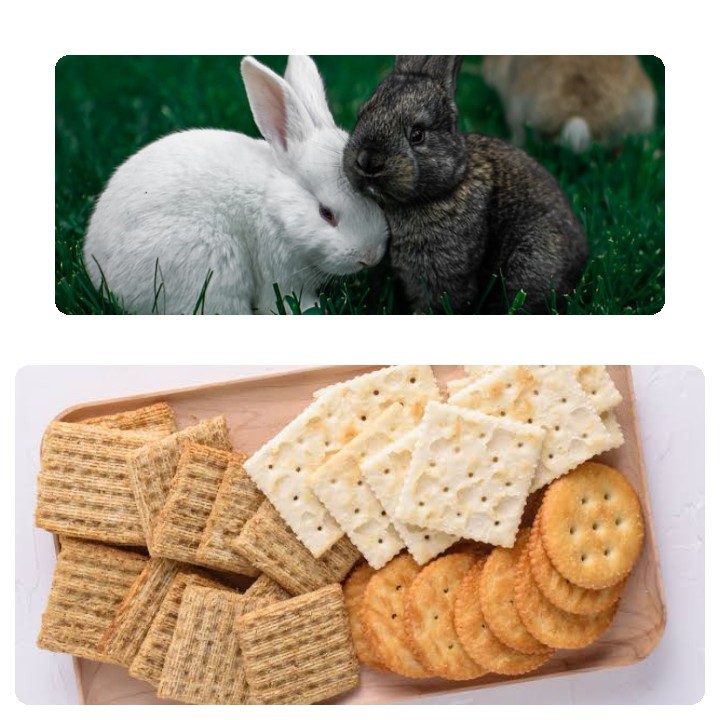Rabbits are adorable and curious creatures that love to explore different types of food. As a rabbit owner, it’s essential to provide them with a balanced diet to ensure their overall health and well-being. One common question that arises is whether rabbits can eat crackers. In this article, we will delve into the topic and provide you with all the information you need to know about feeding crackers to your furry friend.

Can Rabbits Eat Crackers?
While rabbits have a diverse diet that includes hay, fresh vegetables, and pellets, crackers are not a suitable food option for them. Crackers are typically high in carbohydrates, fats, and salt, which can be harmful to rabbits. These ingredients can lead to digestive issues, obesity, and even dental problems in rabbits.
The Risks of Feeding Crackers to Rabbits
-
Digestive Issues: Rabbits have a delicate digestive system that is designed to process fibrous foods. Crackers, being low in fiber, can disrupt their digestive process and lead to issues like diarrhea, bloating, and stomach discomfort.
-
Obesity: Rabbits are prone to obesity, and feeding them high-calorie foods like crackers can contribute to weight gain. Obesity in rabbits can lead to various health problems, including heart disease and arthritis.
-
Dental Problems: Rabbits’ teeth continuously grow throughout their lives, and they need to chew on fibrous foods to wear them down. Crackers, being soft and lacking fiber, do not provide the necessary chewing action, which can result in overgrown teeth and dental issues.
Alternatives to Crackers for Rabbits
Instead of feeding your rabbit crackers, it’s important to focus on providing them with a well-balanced diet that meets their nutritional needs. Here are some suitable alternatives to crackers:
-
Hay: Hay is an essential part of a rabbit’s diet. It provides the necessary fiber for proper digestion and helps wear down their teeth. Make sure to offer a variety of hay, such as timothy, orchard grass, or oat hay.
-
Fresh Vegetables: Introduce a variety of fresh vegetables into your rabbit’s diet. Leafy greens like kale, spinach, and romaine lettuce are excellent choices. Remember to introduce new vegetables gradually to avoid digestive upset.
-
Pellets: High-quality rabbit pellets can be given in moderation. Look for pellets that are specifically formulated for rabbits and avoid those with added sugars or artificial ingredients.
-
Treats: If you want to give your rabbit an occasional treat, opt for rabbit-safe options like small pieces of fruits (in limited quantities) or rabbit-specific treats available in pet stores.
FAQs
-
Can rabbits eat saltine crackers?
No, rabbits should not be given saltine crackers or any other type of crackers. The high salt content and lack of fiber make them unsuitable for rabbits. -
Are there any types of crackers that rabbits can eat?
No, rabbits should not consume any type of crackers. Their diet should primarily consist of hay, fresh vegetables, and pellets. -
What should I do if my rabbit accidentally eats crackers?
If your rabbit accidentally consumes crackers, monitor their behavior and watch for any signs of digestive issues. If you notice any abnormalities, consult a veterinarian. -
Can rabbits eat graham crackers?
No, graham crackers are not suitable for rabbits. They are high in sugar and lack the necessary fiber for a rabbit’s diet. -
Are there any other human foods that rabbits should avoid?
Yes, there are several human foods that rabbits should avoid, including chocolate, caffeine, onions, garlic, and processed foods. It’s best to stick to a rabbit-specific diet to ensure their well-being.
In conclusion, rabbits should not be fed crackers due to their high carbohydrate, fat, and salt content. These ingredients can lead to digestive issues, obesity, and dental problems in rabbits. Instead, focus on providing them with a balanced diet consisting of hay, fresh vegetables, and pellets. If you have any concerns about your rabbit’s diet or health, consult a veterinarian for guidance.

